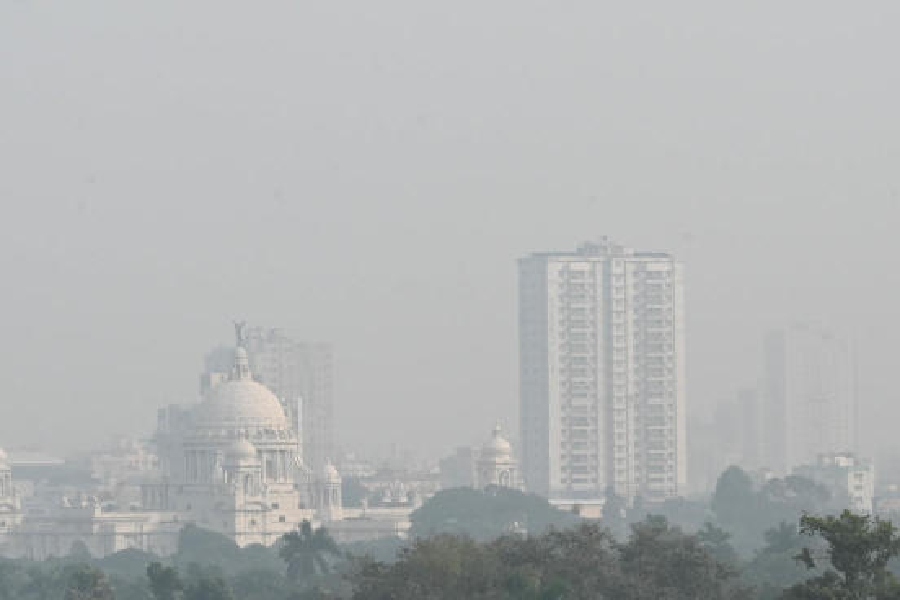The rising risks posed by climate change and air pollution to Calcutta featured in two important meetings at the recently concluded COP29 in Baku.
These environmental challenges, often working in tandem, were highlighted in the two meetings, where Debasish Kumar, a member of the city’s mayoral council and the Bengal Assembly, representedthe city.
“In both the meetings I tried to raise the issue of the climate vulnerability of our city’s population, particularly the urban poor who make up at least one-third of its nearly 5 million resident population and another 5 million floating population who come to the city almost every day in search of livelihood,” Kumar told The Telegraph on the sidelines of the Baku summit.
Earlier, mayor Firhad Hakim had said: “Calcutta is the first major city in Asia to undertake an anti-fossil fuel pledge and is now working on the Climate Action Plan of Kolkata through a committee with nationally frontline sector-specific experts across India. The plan is expected to materialise soon.”
The Calcutta view, expressed in Baku, also resonates with the UN officials present at the meeting.
“Providing resilience to socio-economically challenged people, an issue flagged by the Calcutta official, is a key area of priority with respect to urbanisation and climate change, and we look forward to working with Calcutta on the issue,” said Cerin Kizhakkethottam, a senior United Nations Human Settlements Programme(UN-Habitat) official.
The first meeting was organised by UN-Habitat, the UN entity responsible for sustainable urbanisation, at its multilevel action and urbanisation pavilion along with other global platforms working on urbanisation. The second meeting was organised by ClimateAction Network South Asia (Cansa), a civil society platform of more than 300 non-government organisations across south Asia.
Officials from Jordan, Madagascar and Bangladesh and representatives from several non-profits participated in the meetings.
“We are trying to link all the 14 considered parameters related to climate change, including air pollution, to come up with a unified strategy. I may take this opportunity to share that Calcutta is one of the most climatically vulnerable cities in Asia and the latest UN report, called IPCC AR 6, has also clearly underlined it,” Kumar said in the meetings. He said Calcutta’s vulnerability washeightened by the fact that it was close to the Sunderbans and the Bay of Bengal, one of the most vulnerable global hotspots of climate change with repeated cyclones and very highsea-level increases.
According to sources, energy, transport, drainage and flooding, health, disaster risk reduction, industry and air pollution are being considered for the city plan, which is also slated to havea series of stakeholder meetings on the agenda before being finalised.
“We are already working with Calcutta on climatic issues and are committed to supporting it in its future way forward,” Cansa director Sanjay Vashist said in Baku.










